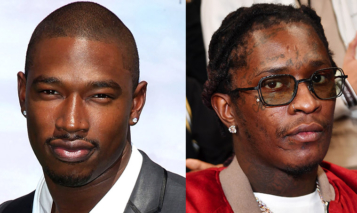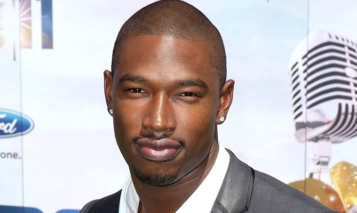
You’ve heard the terms “daddy issues,” and “fatherless sons,” but what do those terms mean? Child experts say fathers (or father figures) are vitally important to a child’s growth and development.
When the father (or father figure) is missing from the home, that absence can cause devastating effects on a child’s emotional and social well-being.
Atlanta rapper Young Thug (pictured above) is an example of a conflicted young man who struggles daily with daddy issues.
Single mothers are great. Most of them do the best they can to provide a stable and happy home for their children. But studies show children thrive when they have two parents in the home. At least one parent should be a biological male, since women can’t teach boys how to be men.
According to Psychology Today, research has shown that absentee fathers are “nothing short of disastrous” for a child’s mental, physical and emotional well-being.
Children, particularly boys, who don’t bond with a father, grow up to experience diminished self-concept and compromised physical and emotional security.
Children consistently report feeling abandoned when their fathers are not involved in their lives. They often struggle with their emotions and experience episodes of self-loathing.
According to Psychology Today, children with daddy issues can exhibit the following behaviors (this is not a complete list):
Behavioral problems: Fatherless children have more difficulties with social adjustment, and are more likely to report problems with friendships, and manifest behavior problems; many develop a swaggering, intimidating persona in an attempt to disguise their underlying fears, resentments, anxieties and unhappiness.
Truancy and poor academic performance: 71 per cent of high school dropouts are fatherless; have more trouble academically, scoring poorly on tests of reading, mathematics, and thinking skills; are more likely to play truant from school.
Delinquency and youth crime: 85 per cent of youth in prison have an absent father; fatherless children are more likely to offend and go to jail as adults.
Promiscuity and teen pregnancy: Fatherless children are more likely to experience problems with sexual health, becoming teenage parents, and contracting sexually transmitted infection.
Drug and alcohol abuse: Fatherless children are more likely to smoke, drink alcohol, and abuse drugs in childhood and adulthood.
Physical health problems: Fatherless children report significantly more psychosomatic health symptoms and illness such as acute and chronic pain, asthma, headaches, and stomach aches.
Mental health disorders: Father-absent children are consistently overrepresented on a wide range of mental health problems, particularly anxiety, depression, and suicide.
Mortality: Fatherless children are more likely to die as children, and live an average of four years less over the life span.
This has been your Medical Minute.
More Info On the Web
Father Absence, Father Deficit, Father Hunger | Psychology Today
Psychological Effects of Growing Up Without a Father
How Women Who Grow Up Without a Father Are Different | RadioMD
Psychology of Fatherless Children
DISCLAIMER
Any medical information published on this blog is for your general information only and is not intended as a substitute for informed medical advice. You should not take any action before consulting with your personal physician or a health care provider. Sandrarose.com and its affiliates cannot be held liable for any damages incurred by following information found on this blog.





